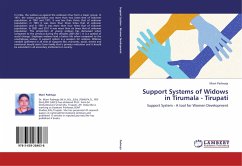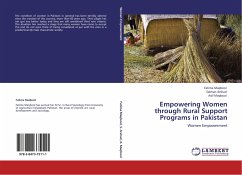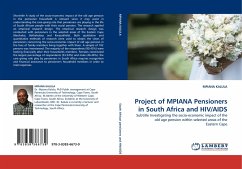
An Investigation Of The Child Support Grant in South Africa
A Case Study Of Ntselamanzi In Alice, South Africa
Versandkostenfrei!
Versandfertig in 6-10 Tagen
32,99 €
inkl. MwSt.

PAYBACK Punkte
16 °P sammeln!
With the introduction of the child support grant in 1998 there has been so much debate towards this fund as it is believed to have negative impacts on its beneficiaries. Some of these criticisms are that it is an incentive for teenagers to fall pregnant, that it creates a system of dependency and that a lot of welfare mothers give birth to many children in order to get more grant money. The aim of this research is to investigate the socio-economic impacts of the child support grant in South Africa. The qualitative research method was used and in depth interviews were used to collect data from ...
With the introduction of the child support grant in 1998 there has been so much debate towards this fund as it is believed to have negative impacts on its beneficiaries. Some of these criticisms are that it is an incentive for teenagers to fall pregnant, that it creates a system of dependency and that a lot of welfare mothers give birth to many children in order to get more grant money. The aim of this research is to investigate the socio-economic impacts of the child support grant in South Africa. The qualitative research method was used and in depth interviews were used to collect data from child support grant beneficiaries. The results from the study show that the child support grant has helped reduce child poverty for many families, that there is no connection between the child support grant and teenage pregnancy and also that it does not necessarily create dependency rather most of the beneficiaries find it hard to get employment.












